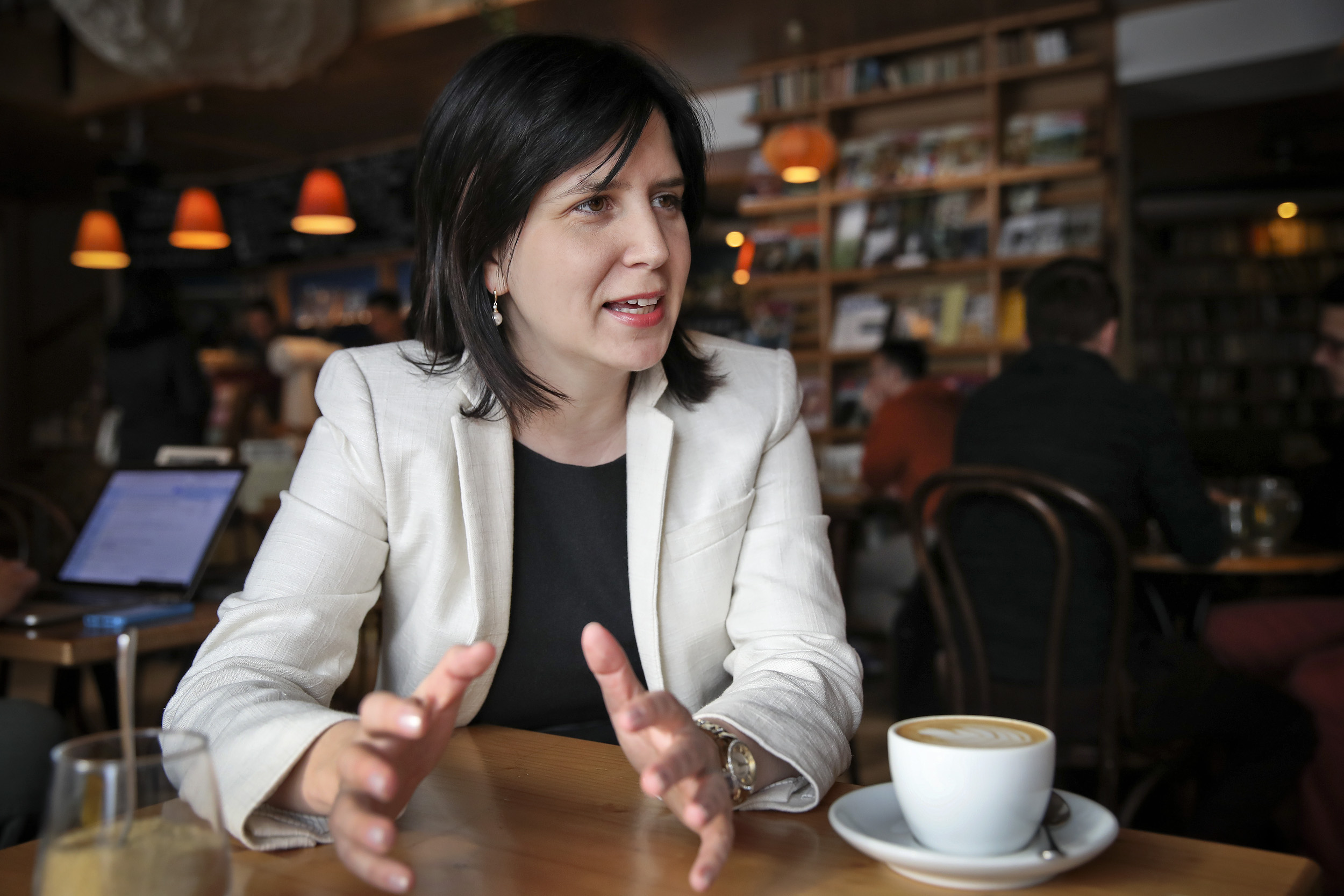
Julia Sonnevend, NSSR Faculty, Researches How Politicians Wield Charm
It’s an election year in the United States, and politicians are inundating the public with videos, blog posts, TikTok and X (Twitter) posts, and emails in an effort to attract potential voters. Julia Sonnevend, an associate professor of sociology and communications, has documented this phenomenon in her book Charm: How Magnetic Personalities Shape Global Politics, which describes the way politicians and leaders are wielding personal magnetism to create a veneer of authenticity as a means of drawing people to their side. Her book is featured in a wide variety of media outlets, including Bloomberg, NPR, Time, and BBC Newshour, and has been named to The New Yorker’s “The Best Books We Have Read in 2024 So Far” list.
“I started to observe a change in politics, watching U.S. politics particularly, which is that instead of charisma that is built on distance from audiences—big, elevated performances like Winston Churchill’s ‘We Shall Never Surrender’ speech or President Ronald Reagan exhorting, ‘Mr. Gorbachev, tear down this wall!’, you have a different form of personal magnetism, a magic spell I call “charm.” Charm is based on proximity to audiences, on the idea that the politician wants to appear as your next-door neighbor. You could have a beer with this person. That’s a very different connection. That led me to analyze this question internationally, and in many different contexts—some democratic, some illiberal, some authoritarian,” says Sonnevend.
Today the media landscape has expanded beyond mass media outlets controlling what is seen, heard, and read to include social media platforms that allow people the opportunity to write, record, edit, and share content. But politicians have always gone to great lengths to try to control their image. “The difference is that now you have a continuous flood of visuals, videos, texts. You can really feel as if you’re in the same space as the politician. With Kamala Harris, for instance, you see cooking videos and dancing videos. You have access to her everyday life, and you just feel like you’re part of her happy, blended family,” says Sonnevend.
“As viewers, you and I have to react. You scroll and scroll and you react and react. I analyze this with my students. In addition to discussing the debates, we also talk about social media. One of the things I tell them is ‘Don’t respond immediately; just give it a little time. Give it a moment or at least a few seconds to think it through before you act.’ The media environment is shifting both in terms of what you get as content and also the illusion that you can respond. You can comment, retweet, share. In many ways it’s an illusion. It’s also an illusion that you have access to the politicians’ daily lives, but you get the feeling that you do.”
Sonnevend notes that the change in media is happening at the same time as a shift toward political personalization that is occurring both nationally and internationally. “This means we’re paying more attention to people than to institutions, values, or even facts. Politicians’ personal magnetism becomes a defining feature of their power. Charm oscillates on a spectrum of seduction and deception: it has a positive side and it has a negative side too.”
Recently Sonnevend has been speaking with the media about her book. She notes that many outlets want to speak with her because they have a family member planning to vote for Donald Trump. “They ask me, ‘What is the charm there?’ I think it is important to realize there are different forms of personal magnetism. Not everybody does it in the same way. And there is still the traditional form of charisma. I think Trump is a combination of both—he likes to give bombastic speeches, and he’s often dressed formally in business suits. But then there’s the baseball cap, which isn’t exactly part of a billionaire’s regular outfit, and there are the stories he tells at his rallies. He recently served burgers in a McDonald’s, attempting to communicate that he is “one of us.” Trump speaks directly, in a way that makes you feel like he’s telling you a story, putting you on equal footing. Politicians can mix the two; they can be charismatic and charming.”
Sonnevend traces her desire to understand this shifting political landscape to her formative years in Hungary. “I grew up during a major political transition in Hungary, from the Communist times to democracy. I think if you grow up in an environment where constitutions are written over weekends, new history books get suddenly introduced, and nothing is really stable, you become interested in politics. I certainly learned that power matters, narratives are important, visuals are crucial, and charismatic and charming people do change the course of history.”
Noting that students today live in a media environment radically different from the one in which she grew up, Sonnevend is designing a new course on propaganda for both undergraduate and graduate students. “There are rampant conspiracy theories on social media, authoritarian leaders who have state-run media, and there’s much less filtering on social media. I’m designing a course that will introduce students to propaganda research and look at contemporary forms of propaganda. What I want students to come away with is to avoid thinking that simplifies complex happenings. I want to teach them to analyze everything going on in the world in a nuanced and empathetic way. But I think for that, we need to understand the shifts in media and what underlies them, from algorithms to actors who may not always have our best interests at heart. It’s a complex media environment, particularly if you’re starting college right now.
“Propaganda is weaponized today in a media environment that changes with breathtaking speed. I feel we professors have a moral responsibility to help our students navigate this environment, and I think professors have a responsibility to encourage mutual understanding, empathy, and bridge-building instead of escalation.”